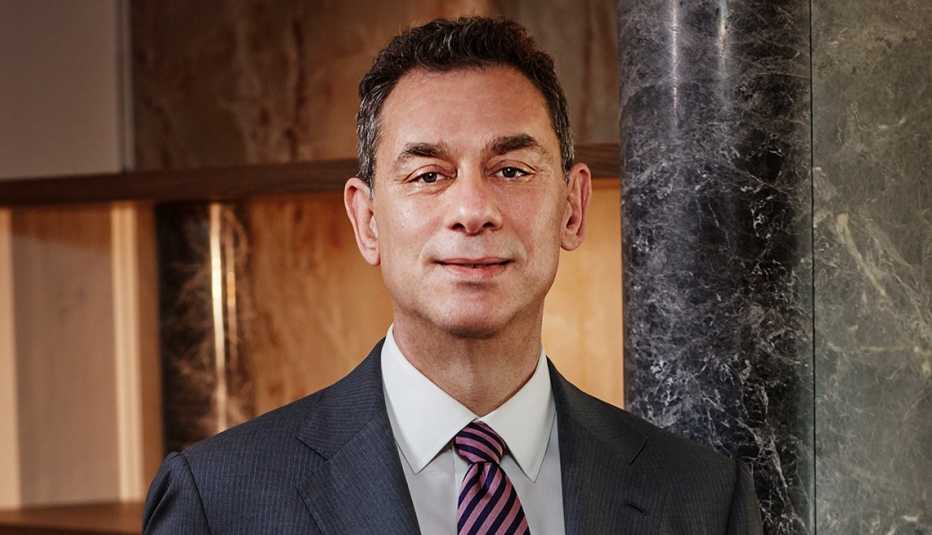Staying Fit


In his new book, Moonshot: Inside Pfizer’s Nine-Month Race to Make the Impossible Possible, Pfizer Chairman-CEO Albert Bourla, the veterinarian turned biotech boss, who’s been with the drug manufacturer for more than 25 years, offers a behind-the-scenes look at the company’s lifesaving journey to create the first COVID-19 vaccine.
The vaccine was a miracle that many were anxiously awaiting. Yet there was — and is — a lot of rejection of it. Were you expecting that?
I didn’t expect that much. Always with vaccines there are some people who do not believe, and there’s always a little bit of misinformation, but those were small percentages. Now there are way more. The higher the income and educational level, the lower the resistance. Also, it was politicized to a certain degree, particularly in America.
What’s the next big vaccine Pfizer is working on?
One of the most important vaccines right now is for RSV [respiratory syncytial virus]. That is on the rise, and there are no vaccines against it. If we can also make some flu vaccines that can work better than 50 percent, that, also, I think will be big.


AARP Membership— $12 for your first year when you sign up for Automatic Renewal
Get instant access to members-only products and hundreds of discounts, a free second membership, and a subscription to AARP the Magazine.
Is there a health challenge you are paying newfound attention to?
The field that is emerging, I would say, is aging. As people are living longer, it’s becoming more and more important to see how you can reverse the sequence of diseases but also your ability to operate independently and to have quality of life.
Who are your role models?
I was inspired by different people in different sectors. Politically, for example, Gandhi and Nelson Mandela, because both of them were able to make tremendous changes and maintain peace rather than revenge. In business, Steve Jobs stood out for me in terms of the ability to bring transformative innovations to the world.
Does being the child of two Holocaust survivors affect who you are and how you live your life?
I am who I am because of that. It was always on the positive side—nothing is impossible, and life is miraculous. It gave me optimism.
In the book you said a glass of wine and a night of Netflix was how you relaxed. Still true? Latest binge?
Clearly, I was not reading philosophy after a long day. I am still doing it. I don’t think it’s Netflix, this one; it’s The Marvelous Mrs. Maisel [Amazon].


































































More Celebrity Q&As
Wynonna Judd Is Honoring Her Mother’s Legacy
Country singer talks grieving, facing your fears and full-time farmingHope Davis Is a Complex Character
Talented actress talks baking, binging ‘The Great British Bake Off’ and backyard playsOur Quick Questions Series Features Celebrity Interviews
Read exclusive interviews with the biggest names in Hollywood and TV, best-selling authors and more high-profile personalities